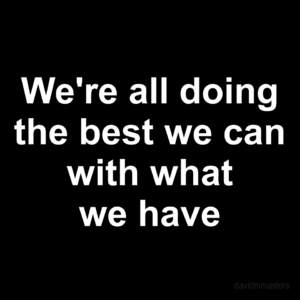What if someone has come to you for help, and you’re doing your best to help them, but they are not being honest and open in the process? Why might someone withhold important information? Engaging in counseling or spiritual work without being open and honest can stem from various underlying motivations and psychological factors.
Why might someone feign therapeutic effort while withholding truth?
Fear of Vulnerability:
Some individuals struggle with deep-seated fears of vulnerability and intimacy. Opening up in therapy or spiritual settings requires confronting uncomfortable emotions and exposing one’s innermost thoughts and struggles. Fear of judgment or rejection may lead someone to present a façade of progress while concealing their true feelings or experiences.
Avoidance of Painful Truths:
Facing painful truths about oneself or one’s circumstances can be incredibly challenging. Individuals may engage in counseling or spiritual practices to seek validation or relief from distress without confronting the underlying issues. By avoiding uncomfortable truths, they attempt to maintain a sense of control over their emotions and protect themselves from further psychological distress.
Desire for External Validation:
Seeking validation from others is a common human desire, and some individuals may engage in therapy or spiritual work primarily for external validation rather than genuine introspection and growth. By presenting a curated version of themselves, they seek approval and affirmation from their therapist, spiritual leader, or peers without fully engaging in the transformative process.
Social Expectations and Pressure:
Societal norms and expectations can also influence behavior, leading individuals to participate in therapeutic or spiritual activities due to external pressure rather than genuine motivation. Family members, partners, or cultural influences may encourage participation in counseling or spiritual practices to address perceived shortcomings or fulfill societal expectations.
Why Might Someone Maintain a Secret Relationship?
Maintaining a secret relationship with someone and maintaining full disclosure to another individual can be an indication of underlying issues such as:
Conflict Avoidance:
The individual may avoid conflict or confrontation by keeping the relationship secret from those who might disapprove or have a stake in their personal life.
Desire for Secrecy:
They may derive a sense of excitement or thrill from keeping the relationship clandestine, finding novelty or satisfaction in the secrecy itself.
Lack of Commitment:
Secret relationships may indicate a commitment or investment deficit in the relationship or with the individuals involved.
Emotional Unavailability:
The individual may struggle with emotional intimacy or commitment, preferring superficial connections or relationships that can be easily compartmentalized and kept separate from other aspects of their life.
Understanding these motivations can address underlying issues and foster genuine growth and transformation.
The Importance of Transparency
In the matrix of human relationships, the intersections of allegiance, transparency, openness, honesty, dishonesty, withholding, and lying permeate the grid with profound implications for personal growth and transformation. Whether in intimate partnerships, professional dynamics, or therapeutic settings, navigating truth and disclosure shapes our development trajectory.
The Foundation of Trust:
Trust lies at the heart of every meaningful relationship, nurtured through transparency and honesty. In therapy, the client-therapist relationship thrives on a foundation of trust. When individuals withhold truths or engage in dishonesty, they erect barriers to the therapeutic process, hindering their growth. The safe space of therapy demands honesty to explore vulnerabilities and challenges, paving the way for healing and transformation.
The Impact on Intimate Relationships:
In romantic relationships, honesty is the cornerstone of intimacy. When one partner withholds information or deceives the other, it erodes trust and undermines the foundation of the relationship. Secrets and lies breed resentment and distance, impeding personal and relational growth. On the other hand, open communication fosters connection and allows for mutual support and understanding, nurturing the growth of both individuals.
Professional Dynamics and Ethical Conduct:
In the realm of work, honesty and transparency are essential for maintaining ethical conduct and fostering a healthy organizational culture. When employees deceive their superiors or colleagues, it disrupts teamwork, undermines productivity, and erodes trust within the workplace. Conversely, a culture of openness and honesty promotes collaboration, innovation, and personal development, as individuals feel empowered to express themselves authentically and contribute to their fullest potential.
The Role of Support Systems:
Beyond professional and romantic relationships, the support systems we cultivate play a pivotal role in our personal growth journey. Friends, family members, counselors, and mentors serve as sounding boards, offering guidance and perspective. When individuals are honest and open with these significant players in their lives, they invite constructive feedback, support, and encouragement, facilitating personal growth and self-awareness.
Therapeutic Disclosure and Transformation:
In therapy, the act of disclosing one’s deepest fears, desires, and struggles is transformative. When individuals courageously confront their truths and share them with a trusted therapist, they embark on a journey of self-discovery and healing. The therapeutic process provides a sacred space for exploration and growth, guided by the principles of honesty, transparency, and trust.
Allegiance, transparency, openness, honesty, dishonesty, withholding, and lying are intricate intersections in relationships and personal development. Embracing honesty and transparency fosters trust, intimacy, and growth, while deceit and withholding create barriers to connection and transformation. Whether in therapy or everyday interactions, cultivating a commitment to truth and openness is essential for navigating life’s complexities and realizing our full potential for growth and fulfillment.
How to Deal with a Dishonest Client
Discovering deliberate withholding or outright lying can present significant challenges for helpers, counselors, therapists, priests, or friends who are deeply invested in their clients’ wellness and growth. Responding to such behavior requires careful consideration, balancing empathy, boundaries, and the therapeutic relationship. Here’s an expanded spectrum of responses, along with their potential implications for both the client and the helper:
1. Compassionate Confrontation:
Approach: The helper addresses the dishonesty directly with the client, expressing concern and offering support to explore the reasons behind it.
Implications: This approach acknowledges the behavior while maintaining a compassionate stance. It encourages honesty and accountability while preserving the therapeutic alliance. If the client is willing to engage in open dialogue, it can foster growth and insight.
2. Setting Boundaries:
Approach: The helper establishes clear boundaries regarding honesty and transparency in the therapeutic relationship. They communicate the importance of trust and integrity.
Implications: Setting boundaries reinforces the therapeutic structure and emphasizes the importance of honesty in the healing process. It sends a message that dishonesty undermines the effectiveness of therapy. However, if the client is unwilling to adhere to the boundaries, it may lead to resistance or termination.
3. Exploring Motivations:
Approach: The helper seeks to understand the underlying motivations behind the client’s dishonesty, exploring any fears, insecurities, or relational patterns that may contribute to it.
Implications: This approach fosters empathy and understanding, acknowledging the complexity of human behavior and providing an opportunity for deeper exploration and insight into the client’s internal struggles. However, uncovering the root causes of dishonesty may require patience and persistence.
4. Non-Judgmental Support:
Approach: The helper maintains a non-judgmental stance, expressing unconditional acceptance and support for the client regardless of their behavior.
Implications: This approach prioritizes the therapeutic relationship above all else, emphasizing empathy and compassion. It creates a safe space for clients to explore and examine their feelings and experiences without fear of judgment. However, it runs the risk of enabling continued dishonesty if boundaries are not reinforced.
5. Referral or Consultation:
Approach: The helper seeks guidance from colleagues, supervisors, or consultation services to address the complex dynamics of dishonesty in the therapeutic relationship.
Implications: Consulting with peers or supervisors can provide valuable perspective and support in navigating challenging situations. It ensures that professional expertise and ethical considerations inform the helper’s response. However, it may delay immediate resolution and require additional resources.
6. Termination of Therapy:
Approach: The helper considers terminating the therapeutic relationship if the dishonesty significantly undermines trust and effectiveness.
Implications: Terminating therapy may be necessary to maintain ethical integrity and protect the well-being of both the client and the helper. It sends a clear message that dishonesty is incompatible with the therapeutic process. The potential impact on the client’s progress and support systems should be considered carefully.
7. Continued Support with Monitoring:
Approach: The helper continues to support the client while closely monitoring their honesty and progress in therapy.
Implications: This approach balances compassion with accountability, offering ongoing guidance and support while emphasizing the importance of honesty. It allows for the possibility of repair and growth within the therapeutic relationship. However, vigilant monitoring is required to ensure the client remains committed to the therapeutic process.
The response to deliberate withholding or lying in therapy requires a nuanced approach that considers the complexities of the client’s motivations, the therapeutic relationship, and ethical considerations. While maintaining compassion and empathy is essential, helpers must uphold boundaries and integrity to foster genuine growth and healing. Each situation may require a tailored response based on the client’s needs, the severity of the dishonesty, and the helper’s professional judgment. Ultimately, the goal is to create a safe, sacred, and supportive environment where honesty and authenticity can flourish, leading to meaningful transformation and personal growth.







